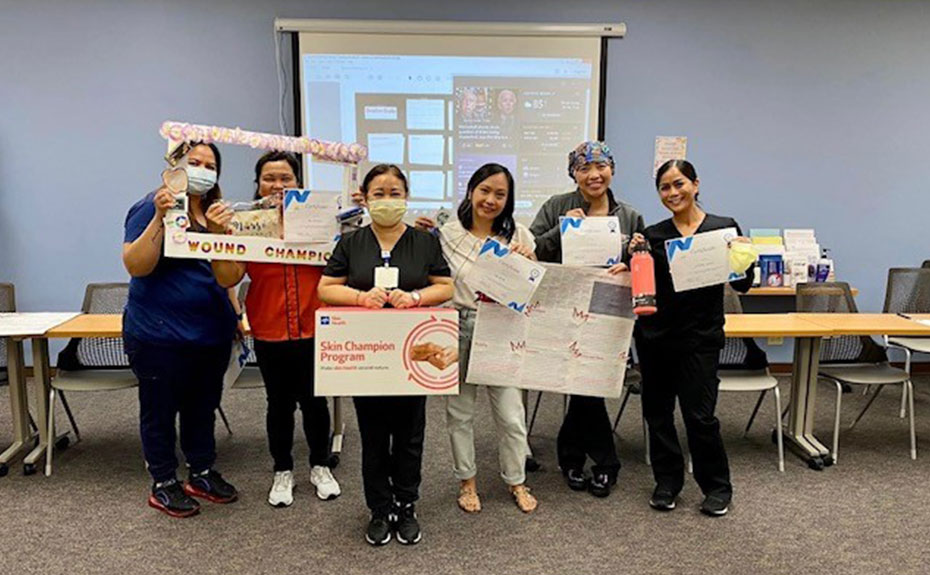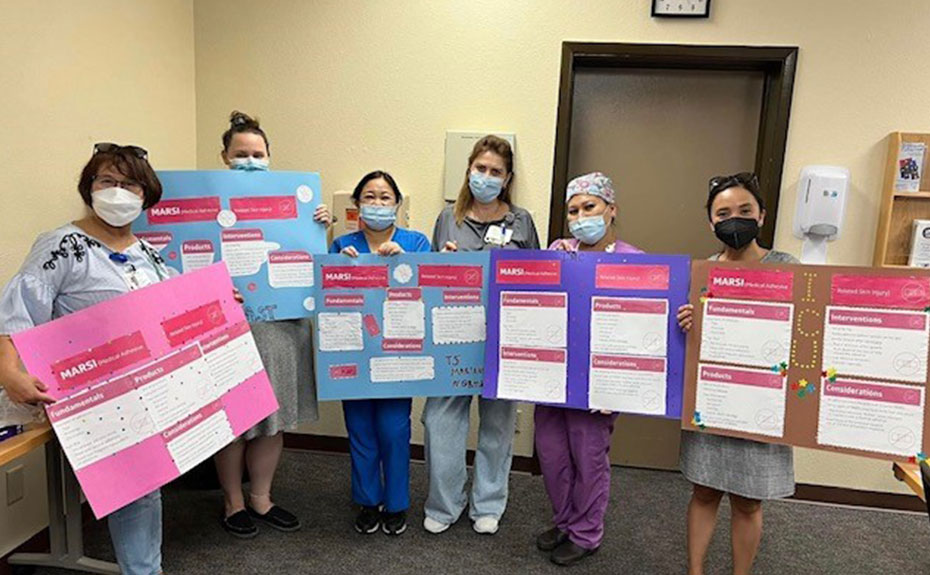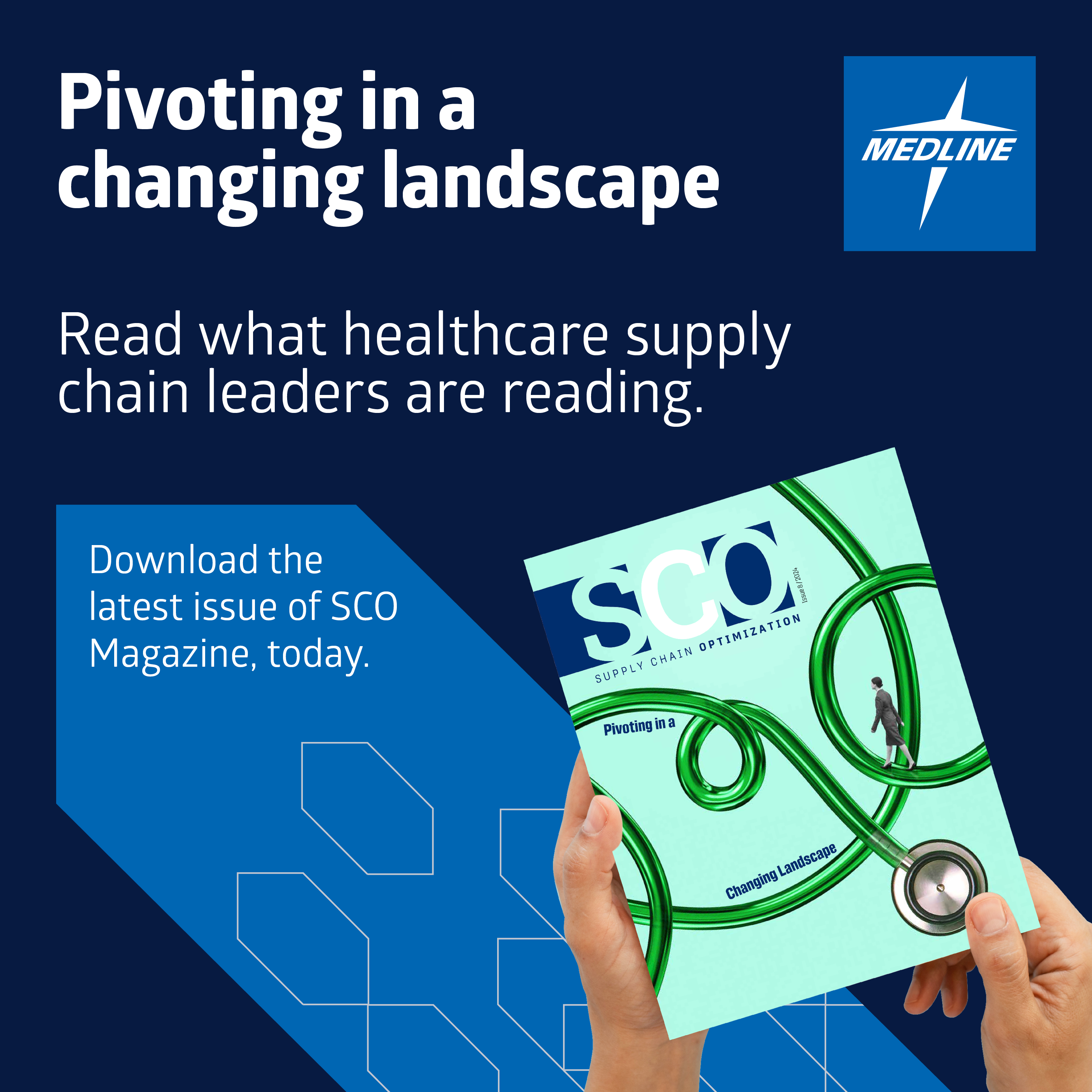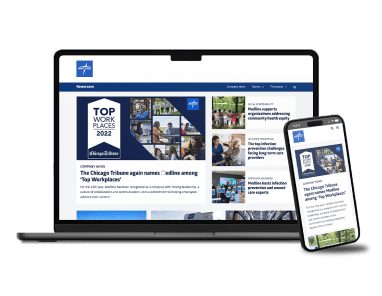Medline clinical assessments: Helping hospitals get protocols back on track

By Medline Newsroom Staff | September 27, 2022

Ongoing staff shortages have disrupted and upended many hospital protocols, potentially increasing healthcare-associated conditions (HACs), diminishing patient outcomes, and impacting Centers for Medicare & Medicaid Services (CMS) performance-based reimbursement.
Heathcare-associated infections, for example, which include central line-associated bloodstream infections (CLABSIs), catheter-associated urinary tract infections (CAUTIs), ventilator-associated events (VAEs) and methicillin-resistant Staphylococcus aureus (MRSA) bacteria, remain “significantly higher” than before the pandemic, according to National Healthcare Safety Network data.
“We’re looking for ways that we can help providers standardize their education and processes.”

Angela Newman, RN, MBA
Medline Senior Director of Clinical Services
To help hospitals assess and address training, procedural and supply gaps, Medline has conducted more than 350 clinical assessments since 2021 in three areas of care: CLABSI, CAUTI and pressure injury prevention. A Medline-directed clinical assessment typically includes a short staff survey, store room review and leadership interviews for a particular area of care. The information is then utilized to develop training and process improvements.
Standardizing education and processes
“A hospital is very practice orientated,” said Angela Newman, RN, MBA, Medline senior director of clinical services, Acute Care. “With the pandemic, every single process was disrupted. So we’ve gotten away from best practice and the basics. We’ve also had a lot of new staff who have not received proper education, and current staff who have not had reinforcement education in some time. In addition, leadership has had so much on their plates; it’s hard to have the bandwidth to focus.
“We’re looking for ways that we can help providers standardize their education and processes,” said Newman, “especially where you’re not really practicing across the board; where improvements can be made.”
Last year, Medline conducted a Skin Health discovery assessment at Desert Springs Hospital and Medical Center in Las Vegas, Nevada, part of Medline’s comprehensive Skin Health Solution, to assess the hospital’s pressure-injury prevention program.

Arlene Blanco, MSN, FNP-C, CWCN, with the Desert Springs Hospital wound care “champions”
“Just like any other hospital during COVID-19, Desert Springs saw challenges with pressure injuries, primarily because of proning,” said Angela Jackson, Medline Skin Health sales rep. At the same time, the hospital was experiencing ongoing staff shortages.
“Our nurses were tired, scared, and working longer and extra hours in order to provide care to an increasing number of COVID-19 patients,” said Arlene S. Blanco, MSN-FNP, CWCN, nurse education lead at Desert Springs.
Identifying the missing pieces
During the Medline assessment, clinicians were asked about procedures, including moisturizing, product use and availability, and patient repositioning.
“We are trying to bridge the gap between what leadership thinks is happening on the floor and what is actually happening on the floor,” said Jackson. “Our job and our goals are to find where those missing pieces are.”
“We continuously apply the pressure injury prevention initiatives that we learned from the Skin Health Solutions program. I am so grateful that Medline has this kind of program.”
Arlene Blanco, MSN, FNP-C, CWCN
Desert Springs Hospital Nurse Education Lead
For Desert Springs, the solution included enhanced procedures, ongoing training and new skin care products. The changes resulted in a 68.5% reduction in the total number of hospital-acquired pressure injuries (HAPIs), and a 69.3% reduction in the incidence of HAPIs. These results were presented by Blanco at the 2022 WOCNext Conference in Ft. Worth, Texas.1
Empowering staff
Blanco says her staff now feel “confident and empowered.
“We continuously apply the pressure injury prevention initiatives that we learned from the Skin Health Champion Program,” said Blanco. In addition, the hospitals’ newly trained wound care “champions” make and display posters after each education session, providing “an essential tool” to share and reinforce newly gained knowledge.
“I am so grateful that Medline has this kind of program,” said Blanco.
Medline also offers Urological Solution and Vascular Access Health Solution assessments.
During a urological assessment, for example, acute care clinicians are asked about practices pertaining to hanging and securing urinary drainage bags and tubing; the timely removal of catheters; the placement of labels indicating the date and time of catheter insertion; and the use of indwelling catheters.
“Medline takes an evidenced-based approach to empower staff to tackle key patient safety initiatives,” said Newman. “Using best practice guidelines to make customized recommendations based on a discovery assessment, education and training resources to help staff work more consistently, and a system of intuitively-designed products to support best practice, Medline is a partner to support facilities in achieving their HAC reduction goals.”
Newman added that it’s never too late to prioritize HAC reduction and other safety protocols and procedures.
“Now is the time to look forward to the next clinical year and to be proactive,” said Newman. “It’s never bad to look at your processes and try to improve. Even if it’s just for a quarter or a month; that can make a financial impact on your hospital.”
Read the related case study, “How a Las Vegas hospital reduced HAPIs, despite pandemic challenges.”
Learn more about how Medline partners with healthcare systems to improve care.
- Blanco AS. Implementation of skin health procedures to reduce the incidence of hospital acquired pressure injuries (HAPI). Presented at: WOCNext Conference; June 5-8, 2022; Fort Worth, TX.
Medline Newsroom Staff
Medline Newsroom Staff
Medline's newsroom staff researches and reports on the latest news and trends in healthcare.

